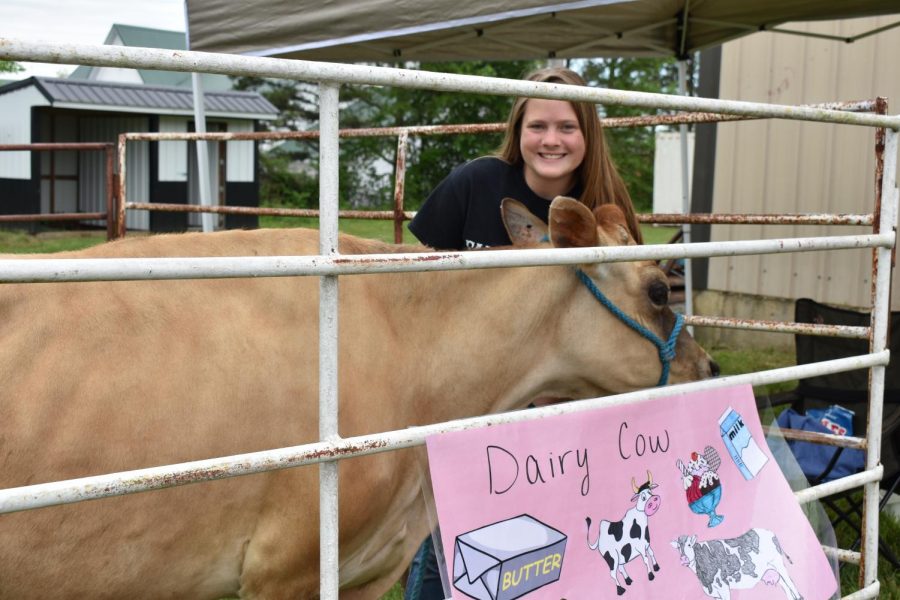Agriculture Issues: Biodiesel
February 25, 2020
Biodiesel is a substitute fuel that many Missourians will soon be using in their daily life; however, the outcomes, good and bad, are being looked at by law-makers.
What originally sparked my interest over biodiesel (because that’s not typically what high schoolers are looking to research) was my recent 4-H experience at the state capital. I spent three days shadowing senators and legislators, while enhancing my knowledge over current state issues. I tended to focus on the agriculture side of bills, as that is my main interest. One of the most popular bills was over the mandating of biodiesel.
To begin, biodiesel is a renewable, biodegradable fuel that is manufactured from different materials (vegetable oils, animal fats, or used grease). Biodiesel is already available at many fueling stations around the state, but current legislation is looking to make this the main source of diesel.
While I listen to legislatures, senators, and agriculture commodity groups speak of high expectations and hopes for such fuel, I wondered how Missourians would benefit from it. The material that would primarily be used in Missouri produced biodiesel is soybeans, resulting in the use of soybean oil that is already produced in-state, but exported to other places.
Soybeans are crushed in plants, then separated to meal and oil. The meal is used to feed livestock, and is often in higher demand than oil. This unbalanced relation between the use of oil and meal causes the meal to be high in cost, and the oil to be wasted. Because of the possible increased need for oil, it could better regulate the cost of meal, which I believe farmers from all areas can be thankful for.
Another reason that was brought to my attention by a delegate from the Missouri Soybean Association was that biodiesel is good for not only Missouri, but America, due to the recent trade issues with China. Currently, 60% of soybeans grown in the United States are exported specifically to China, while Missouri is ranked seventh for soybean production. If trade deals fall through with foreign countries, many Missourian soybean farmers will see that direct impact to their profit. Biodiesel would allow them to, “keep from putting all their eggs in one basket,” or give them opportunity to grow locally.
However, not everyone believed that biodiesel was all rainbows and butterflies. A legislature from southwest Missouri is fighting against the bill. She feels as if mandating all diesel to be 5% biodegradable substances will not only raise the price, but deter truckers from Missouri. As someone involved in agriculture, she understood the possible market increase for farmers, but believed the risk was not worth it. She brought up the point that many truckers don’t believe it is the right fuel to use in their semi-trucks, which leads to the possibility of “interstate towns” hurting.
Biodiesel definitely has its pros, as it could increase farmers’ profits and keep our resources local, but it is also important to look at the problems with the fuel. Agriculture is full of issues, just like biodiesel, where nobody is really certain on what the right answer is. It is important to know both sides to all issues.
